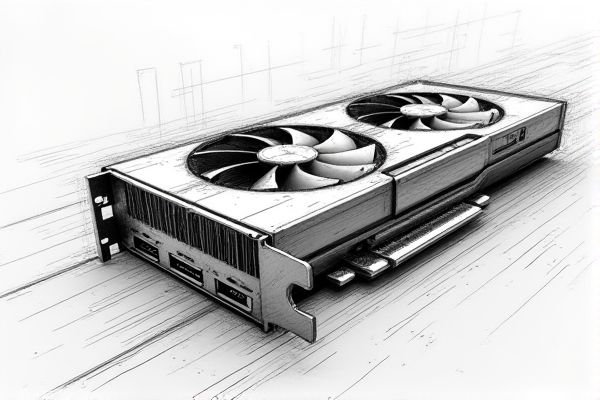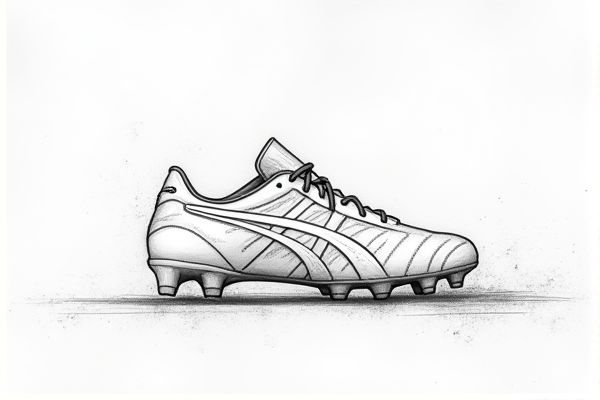In the rapidly evolving world of technology, choosing the right graphics card can significantly influence your computing experience, whether you’re gaming, designing, or simply striving for superior multimedia performance. With an array of options available, it can be challenging to discern which brands consistently offer the best products and customer satisfaction. Top-tier brands are often recognized for their innovation, reliable performance, and outstanding support, setting them apart in the competitive marketplace. To discover which brands lead the pack and what makes each unique, read on for a comprehensive analysis of the best graphics card brands available today.

Illustration of graphics cards
Best brands of graphics cards in 2025
NVIDIA
NVIDIA stands as a dominant force in the graphics card market, holding an impressive 88% market share in the desktop graphics card sector as of Q1 2024, a significant increase from the previous quarter's 80%. The company's robust growth is attributed to its high-performance RTX 4000 GPUs and anticipated releases like the RTX 5090 and RTX 5080. In the data center GPU market, NVIDIA retained a staggering 98% market share in 2023, shipping 3.76 million units and achieving a 42% year-on-year growth. NVIDIA's revenue has also seen substantial growth, reaching $60.9 billion in 2023 with a 126% year-on-year increase. This dominance underscores NVIDIA's commitment to innovation and performance in the GPU industry.
AMD
AMD is a significant player in the graphics card market, known for its competitive offerings and fluctuating market share. In Q1 2021, AMD held a 20% market share, though this dropped to 12% by Q1 2024, according to Jon Peddie Research. Despite this, AMD saw a notable increase in market share to 19% in Q4 2023, driven by a 117% year-over-year growth in shipments. AMD's GPUs, such as the Radeon RX 6800 XT and 6900 XT, are praised for their performance and durability, often lasting 3-5 years under heavy gaming loads. The company's recent growth indicates a strong recovery and increased competitiveness in the market. For more insights on their impressive market recovery, you can read more on TomsHardware.
ASUS
ASUS is a renowned brand in the graphics card market, known for its high-quality and innovative products. As of 2023, ASUS holds a significant position in the PC market, with a global PC unit shipment market share of 6.5% and shipping 20.7 million PCs globally. The company's graphics cards, such as those under the Republic of Gamers (ROG) and TUF Gaming series, are designed for demanding enthusiasts and offer advanced cooling technologies and robust manufacturing. Despite facing competition, ASUS remains a major player, with its graphics cards catering to various needs, from gaming to professional visualization. In 2023, ASUS's revenue from personal computers accounted for 63% of its total revenue.
MSI
MSI is a leading brand in the gaming industry, renowned for its innovative and high-performance graphics cards. As a trusted name in gaming and eSports, MSI has sponsored over 20 eSports teams worldwide and hosts the prestigious MSI MGA (Masters Gaming Arena) tournament. The company's commitment to breakthroughs in design and technological innovation has made it a favorite among gamers, offering extreme performance, realistic visuals, and smooth streaming functions. MSI's products integrate the latest advancements, such as those seen in NVIDIA and AMD GPUs, to provide unparalleled gaming experiences. With a strong focus on gamer interactions and continuous innovation, MSI has solidified its position as a top-tier brand in the gaming hardware market. To learn more about MSI's incredible journey and commitment to gaming excellence, visit their brand story page.
EVGA
EVGA, a renowned brand in the graphics card industry, has been a leading add-in-board (AIB) supplier for Nvidia, holding a significant 40% market share in North America and a strong presence in Western Europe. Since its inception in 2000, EVGA has been acclaimed for its high-quality graphics cards, particularly the highly efficient cooler for Nvidia's GeForce MX 440. The company's FTW and XC series have been favorites among gamers and content creators alike. However, due to conflicts with Nvidia, EVGA has decided to cease producing GPUs and will no longer support Nvidia's next-generation series. This decision marks a significant shift in the PC graphics industry.
Gigabyte
Gigabyte is a renowned brand in the graphics card market, known for its high-performance and reliable products. Their AORUS series is particularly acclaimed for its professional performance and advanced thermal solutions, catering to the needs of gamers and overclocking enthusiasts. As a leading motherboard and graphics card manufacturer, Gigabyte ensures outstanding quality and performance, making it a preferred choice among consumers. Despite the dominant market share of Nvidia, which stands at 88% as of Q1 2024, Gigabyte's products remain highly regarded for their stability and innovation. For more details, explore their graphics card offerings.
Zotac
Zotac is a notable producer of graphics cards, particularly known for offering cheaper GPUs that are significantly more affordable than those from other brands, making it an attractive option for budget-conscious gamers. Despite using lower-quality parts in areas such as cooling components, Zotac's GPUs have a relatively low failure rate and are suitable for most gaming needs. The company focuses on its NVIDIA partnership and offers a solid selection of products, although its range is not as extensive as some larger brands. Zotac's compact GPU designs are also ideal for those seeking a more compact computer setup. This approach has helped Zotac maintain a strong presence in the market, especially among budget gamers.
Sapphire
NVIDIA dominates the discrete GPU market with an 88% share in 2024, significantly outpacing AMD's 12% and Intel's negligible presence. NVIDIA's market share has been steadily increasing, with a peak of 88% in Q1 2024, according to Jon Peddie Research. This dominance is attributed to NVIDIA's strong product lineup, including the RTX 4000 series, and its aggressive market strategies. AMD, however, remains a significant player, particularly in the mid-range segment, where it aims to offer competitive value propositions. Intel's efforts in the GPU market have not yet yielded substantial results.
PowerColor
PowerColor, a renowned Taiwanese graphics card brand established in 1997, is a leading producer of AMD Radeon video cards, catering to a wide range of markets from low-end workstations to high-end gaming machines. Known for its custom-design graphics cards, PowerColor has gained recognition through its products such as the Red Devil, Red Dragon, and HellHound series. The company's manufacturing partnership with Foxconn allows it to offer overclocked cards with higher specifications than standard AMD models. PowerColor's products have been widely reviewed and have received several awards, highlighting their quality and performance. Despite Nvidia's dominant 88% market share, PowerColor remains a significant player in the AMD ecosystem. For more information on their latest innovations, check out PowerColor's debut of the Reaper line of graphics cards with Radeon RX 8000 series.
PNY
PNY, though not as widely recognized in Western markets, is a reputable brand for graphics cards, particularly known for its partnership with NVIDIA. PNY offers high-quality NVIDIA GeForce and Quadro graphics cards, such as the PNY GeForce RTX 3060 Ti, which are valued for their performance and reliability. Despite NVIDIA's dominant 88% market share in the GPU market, PNY's products remain competitive, especially in professional applications like CAD, scientific computing, and large-scale visualization. PNY's Quadro solutions come with a 3-year warranty and dedicated support, making them a solid choice for professional users. However, their market presence is overshadowed by the dominance of NVIDIA and the challenges faced by AMD and Intel in the GPU market.
















Leave a Reply
Your email address will not be published.